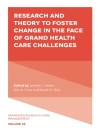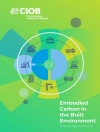Marine ecotourism is a major growth area within ecotourism, itself a rapidly expanding area within tourism as a whole. The activity has been attracting increasing attention, both from the popular media and from professionals and academics with an interest in tourism’s potential to contribute to sustainable development. However, there is a growing consensus that far too often the term has been used merely as a tool for capitalising on the good intentions of tourists, without the industry itself having to make fundamental changes to their products or to the way they go about their operations. This has often been to the detriment of local environments, economies and host communities. Yet the ideal of ecotourism, as it is properly understood, is to present local communities with a sustainable development alternative – one that works to the benefit of local ecosystems, local economies and local people. The purpose of the first section of this book is therefore to introduce the concept of marine ecotourism and to draw out some of the key issues involved in ensuring that marine ecotourism is developed in a genuinely sustainable manner. The second section then discusses some practical experiences of planning and managing marine ecotourism from around the world, identifying common problems and discussing what might constitute good practice in addressing those problems.
Table of Content
Ron Mader: Foreword
Preface
Editors and Contributors
Julie C. Wilson and Brian Garrod: Introduction
Section 1: Issues in Marine Ecotourism
1 Brian Garrod: Defining Marine Ecotourism: A Delphi Study
2 Erlet Cater: Between the Devil and the Deep Blue Sea: Dilemmas for Marine Ecotourism
3 Julie C. Wilson: Planning Policy Issues for Marine Ecotourism
4 Simon D. Berrow: An Assessment of the Framework, Legislation and Monitoring Required to Develop Genuinely Sustainable Whalewatching
5 María José Viñals, Maryland Morant, Mohamed El Ayadi, Lola Teruel, Salvador Herrera, Santiago Flores and Oscar Iroldi: A Methodology for the Determining the Recreational Carrying Capacity of Wetlands
Section 2: Experiences with Marine Ecotourism
6 Elizabeth A. Halpenny: NGOs as Conservation Agents: Achieving Conservation through Marine Ecotourism
7 Ghazali Musa: Sipadan: An Over-exploited Scuba-diving Paradise? An Analysis of Tourist Impact, Diver Satisfaction and Management Priorities
8 Claudia Townsend: Marine Ecotourism through Education: A Case Study of Divers in the British Virgin Islands
9 Matthew Mc Donald and Stephen Wearing: Reconciling Communities’ Expectations of Ecotourism: Initiating a Planning and Education Strategy for the Avoca Beach Rock Platform
10 Zena Hoctor: Community Participation in Marine Ecotourism Development in West Clare, Ireland
11 Ilika Chakravarty: Marine Ecotourism and Regional Development: A Case Study of the Marine Park Project, Malvan, Maharashtra, India
12 Simon D. Berrow: Developing Sustainable Whalewatching in the Shannon Estuary
13 Colin D. Speedie: Marine Ecotourism Potential in the Waters of South Devon and Cornwall
14 Christos P. Petreas: Scuba diving: An Alternative Form of Coastal Tourism for Greece?
15 Mark B. Orams: Marine Ecotourism in New Zealand: An Overview of the Industry and its Management
Brian Garrod and Julie C Wilson: Conclusions
Index
About the author
Julie Wilson is Research Fellow with the Centre for Environment and Planning, University of the West of England, Bristol (UK) although currently a Batista i Roca Fellow with the Department of Geography, Universitat Rovira i Virgil, Tarragona and Visiting Fellow, Universitat de Barcelona (Catalonia, Spain).












